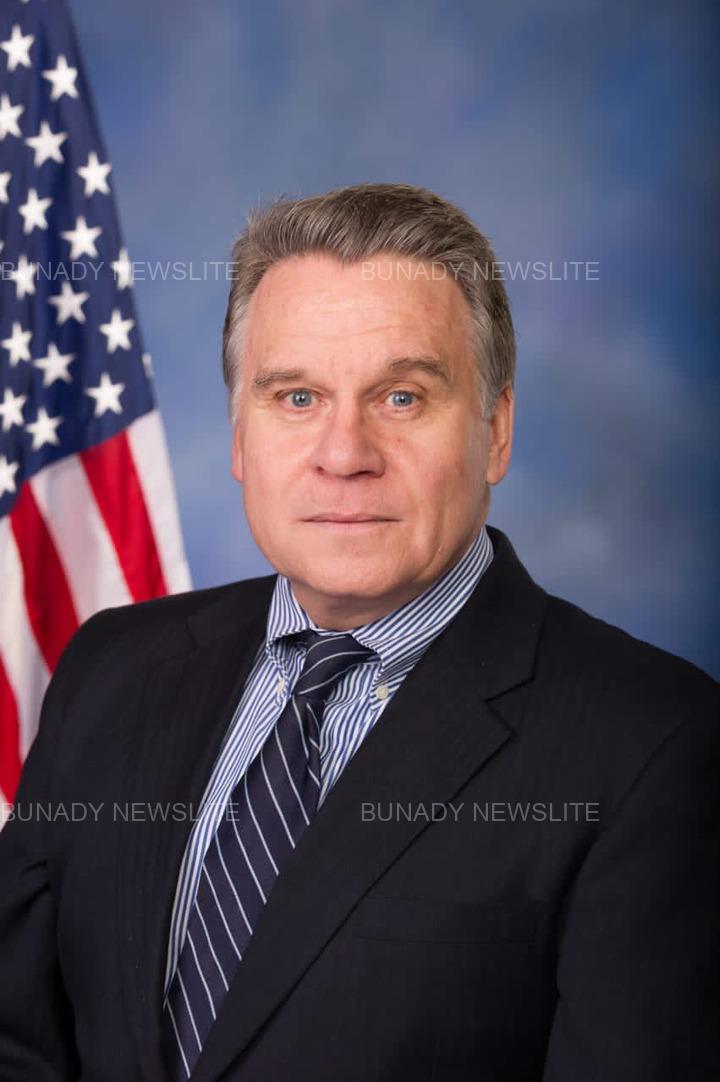U.S. U.S. Representative And Congressman Pushes to Redesignate Nigeria as Country of Particular Concern Amid Ongoing Violence
U.S. Representative Christopher Smith (R-NJ-4) has introduced House Resolution 220, urging the U.S. government to redesignate Nigeria as a Country of Particular Concern (CPC) under the International Religious Freedom Act of 1998. Filed on March 11, 2025, the resolution is currently under review by the House Committee on Foreign Affairs.
More than 3.5 million people are internally displaced within Nigeria, and over 343,000 have fled to neighboring countries as refugees
The resolution reflects mounting concern in Congress over continued violence against Christians, moderate Muslims, and other vulnerable groups in Nigeria. The CPC designation is reserved for countries that commit or tolerate particularly severe violations of religious freedom, and it would subject Nigeria to closer monitoring and possible sanctions.
Nigeria has faced more than a decade of persistent attacks by extremist groups such as Boko Haram, Islamic State West Africa Province (ISWAP), and armed Fulani militants. According to Open Doors USA, over 5,000 Christians were killed in Nigeria in 2023 alone—more than in any other country.
Human rights organizations, including Amnesty International and Human Rights Watch, have documented the destruction or damage of over 18,000 churches since 2009, along with widespread incidents of abductions, sexual violence, and forced conversions.
Nigeria was previously designated a CPC by the U.S. State Department in 2020
The United Nations High Commissioner for Refugees (UNHCR) estimates that more than 3.5 million people are internally displaced within Nigeria, and over 343,000 have fled to neighboring countries as refugees.
Nigeria was previously designated a CPC by the U.S. State Department in 2020, but the designation was lifted in 2021. Secretary of State Antony Blinken argued that the violence did not meet the threshold for religious persecution—a decision that drew sharp criticism from advocacy groups.
H.Res.220 disputes that rationale, citing evidence from Christian Solidarity Worldwide, Open Doors, and the International Committee on Nigeria (ICON), all of which have documented systematic, targeted attacks on religious minorities.
Religious freedom is a fundamental human right
Twelve northern Nigerian states implement Sharia law alongside the country’s secular legal system. In many cases, this has led to mob violence, blasphemy charges, and extrajudicial killings. One widely reported incident involved a Christian student who was beaten and burned alive by classmates after being accused of blasphemy.
“Religious freedom is a fundamental human right,” said Rep. Smith. “Nigeria’s failure to hold accountable those who perpetrate violence sends a troubling message of impunity.”
In central Nigeria, local leaders continue to raise alarms over coordinated violence in farming communities. Plateau State Governor Caleb Mutfwang recently described the killings in Bokkos Local Government Area as “genocide,” pointing to a pattern of attacks timed with the farming season.
“At the onset of farming, these attacks come in. Then there’s calm, and just before harvest, another wave comes. It suggests an effort to keep people in perpetual poverty,” Mutfwang said in an interview with ARISE NEWS.
Some are still missing, and more bodies are being recovered
Local sources report that more than 63 people were buried in Bokkos following recent attacks. David Nanpet, a volunteer with the International Committee on Nigeria (ICON), told TGNews. “Some are still missing, and more bodies are being recovered. This is genocide, just as the governor said.”
Further violence was reported in neighboring Bassa County, where ICON volunteer Phillips Sorongi confirmed that 20 people were killed over two weeks in machete attacks targeting Christian farmers. Witnesses identified the attackers as armed Fulani militants. Sorongi told TGNews.
Despite repeated assurances from the Nigerian government that security is being addressed, community leaders, aid organizations, and international observers continue to report slow responses, inadequate protection, and a lack of prosecutions.
The international community has ignored or downplayed the scale of religiously motivated violence in Nigeria
Religious leaders engaged in interfaith peacebuilding efforts have also faced threats, disappearances, and in some cases, targeted killings. Journalists and human rights defenders documenting the violence report increasing harassment and detention.
Kyle Abts, Executive Director of the International Committee on Nigeria (ICON), welcomed the resolution and stressed its importance: wrote to TGNews.
“H.Res.220 is a crucial step toward accountability. For too long, the international community has ignored or downplayed the scale of religiously motivated violence in Nigeria. This resolution sends a clear message: the U.S. cannot remain silent while communities are systematically attacked, displaced, or destroyed.”
If adopted, the resolution would not only restore Nigeria’s CPC designation but also increase U.S. diplomatic pressure and oversight regarding the country’s handling of sectarian violence. It could open the door for targeted sanctions and expanded support for at-risk populations.
Though the resolution’s path through Congress remains uncertain, its introduction signals growing bipartisan concern over religious freedom and human rights in Africa’s most populous nation.

